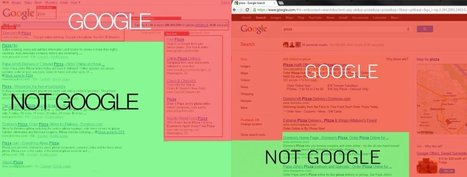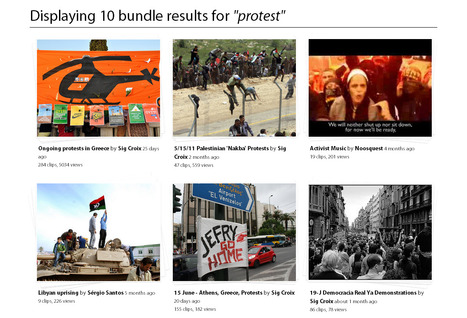
|
Scooped by Robin Good |
Matt Rosoff writes on Business Insider UK:
"A lot of people think Google Search is like a map: An objective guide to the best and most important material on the internet. It's not.
Google Search is the most important product of a very wealthy and successful for-profit company. And Google will use this product to further its own commercial ends." (Not to help people find the most relevant info to their own learning needs.)
This is an excellent article that should be read a couple of times slowly to remind oneself of Google key aspirations and limits.
In it, the author illustrates with relevant references how Google uses whatever means it has to further the interest and revenues generated by its search engine ad business (AdWords / AdSense).
It also highlights, that like any other dominant, monopoly-like company it risks of being challenged in courts around the world, and this is "what Google desperately wants to avoid. If a government body issues a formal legal ruling that Google Search is an anticompetitive monopoly that needs to be regulated, it opens the floodgates".
Meanwhile Google Search is and will be increasingly challenged by smaller but more relevant, specialist search engines, like Amazon or Yelp.
But Google, hungry by its profit-driven goals, keeps also increasing the amount of information it provides itself inside search results, versus original content and resources that are out there on the web.
In four years time Google has doubled the amount screen real estate that it uses to promote its services or ads.
All of this to say, that Google is a for-profit company and not a humanitarian endeavour built and maintained to provide a true guide to the best information available online.
For whoever has the interest, passion and skills to search, filter and organise information this is important news.
There's an opportunity to provide higher quality, better vetted information results than Google presently does. At least in some areas.
If Google is too busy about serving ads and pushing its own services, there will have to be someone else who can provide to Google, or other search engines, trusted quality search results on specific subject matters.
As for Google there is one area where it cannot really compete with talented humans: trust.
True information curators, of the expert kind, may indeed become in great demand in the near future. And personal trust will determine which one you and I will rely on. Whether Google will exist or not.
Right to the point. Informative. 9/10
Full article: http://uk.businessinsider.com/google-is-not-a-charity-2015-3



 Your new post is loading...
Your new post is loading...

















Put simply - Google (and for that matter any commercial search engine) may skew search results to promote their own commercial interests. The question to ask yourself is "are the (search) results good enough?" - I'd say in Google's defence "yes they are".
Reading time: 5mins
https://plus.google.com/+PaulMathewsWSI/posts
167